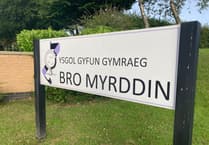Over the last decade 334 extra children have begun homeschooling in Pembrokeshire, according to figures supplied through a Freedom of Information request by homeschooling provider Wolsey Hall Oxford.
In 2013, figures revealed that just 33 children were homeschooled in Pembrokeshire but by 2022 this had increased to 367.
In the last four years alone, Pembrokeshire has seen an overall rise in homeschooling of 41%. The number of Primary-aged children being taught at home rose from 144 to 161 (12 per cent) and the number of Secondary-aged children has risen from 116 to 206 (78 per cent).
These figures show that despite Covid-19 restrictions easing up, and schools re-opening, many parents have opted to continue homeschooling their children. They reflect a similar picture seen across the UK, as statistics show that there are now more than 71,515 homeschoolers – up from 59,559 in 2018 and 22,408 in 2013. Wolsey Hall Oxford has been collating this information from over 100 UK Councils through Freedom of Information requests.
Wolsey Hall Oxford Principal, Lee Wilcock, said: “What seems very apparent is that those parents who chose to try homeschooling for the first time during Covid-19 have realised how beneficial online learning can be. Homeschooling allows children to learn at their own pace and at a time which suits them. It is a much more child-centred approach to education than is available in a traditional classroom.”
Of course, the pandemic is not the only reason parents opt to homeschool their children. Some of the most common reasons for parents to choose homeschooling include:
It is also interesting to note that a wellbeing survey conducted by Wolsey Hall Oxford in September 2022 – and completed by 343 parents – concluded that 91.5 per cent of parents believe that their child’s wellbeing has improved since they opted to homeschool.
One parent said: “My son has thrived. He is a true (gregarious) introvert... He loves being around people socially, but it tires him out, so school left him feeling drained, with no energy for true social interactions. Being able to learn alone and quietly has left him with plenty of energy for social and extra-curricular activities – scouts/young leaders, tennis, drama club, youth group etc. He has become confident in his own abilities and also learnt when and how he can take the initiative to get help when needed.”





Comments
This article has no comments yet. Be the first to leave a comment.